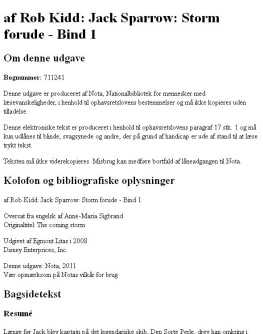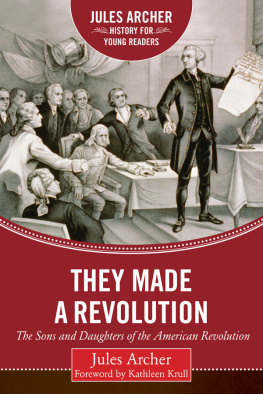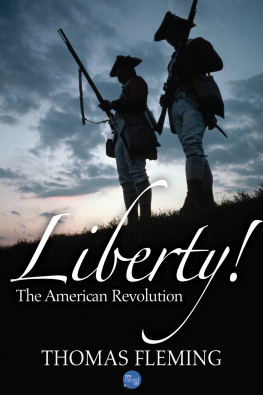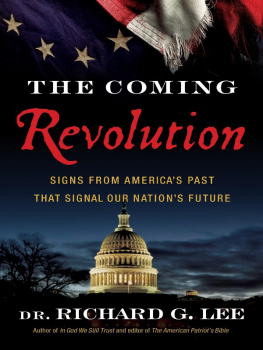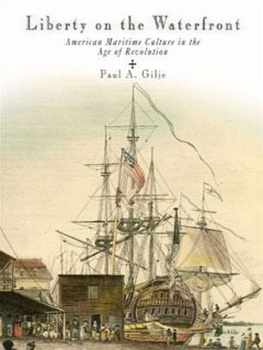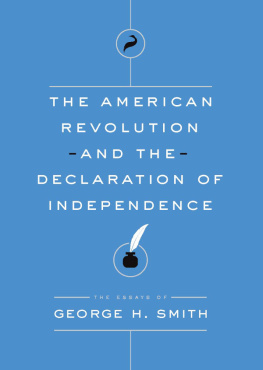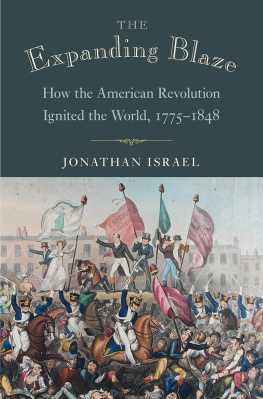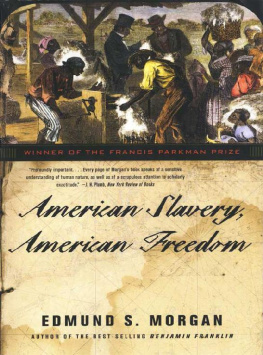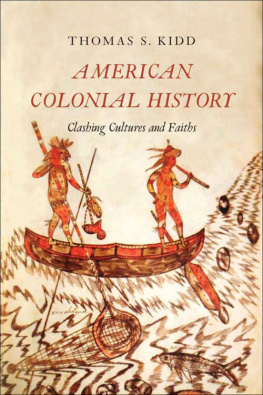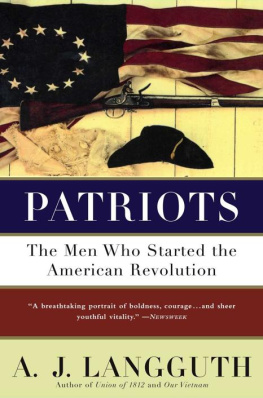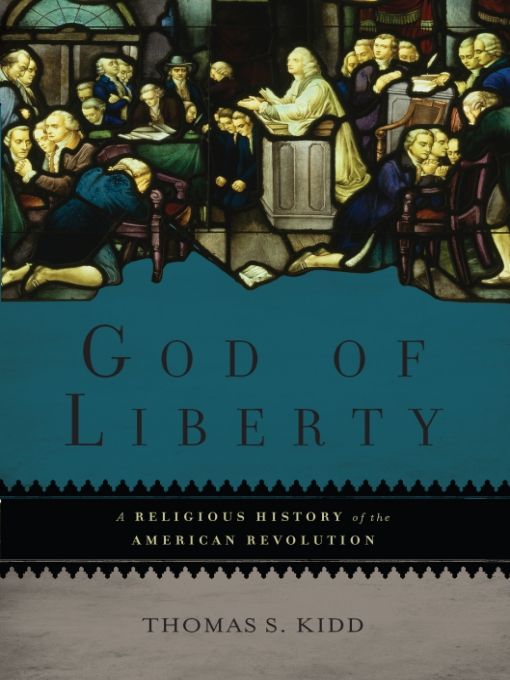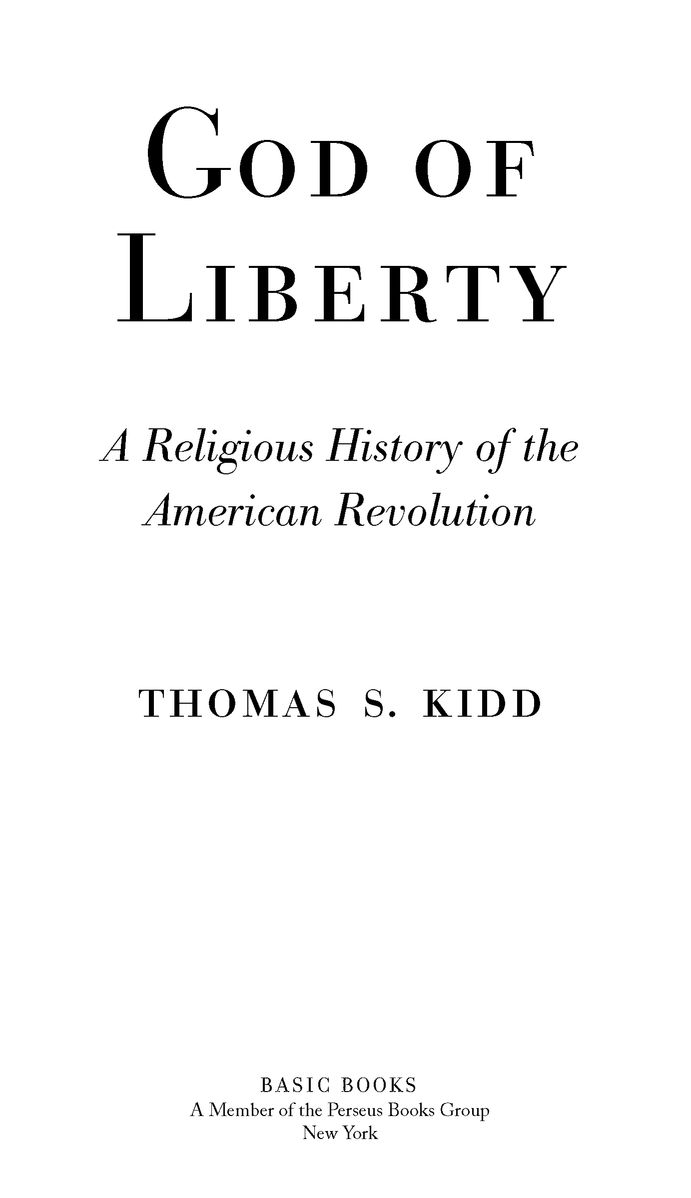Table of Contents
INTRODUCTION
Rebellion to Tyrants Is Obedience to God
Religion and the American Revolution
THE EVANGELICAL CHAPLAIN David Avery of Franklin, Connecticut, saw his first action of the Revolutionary War at the Battle of Bunker Hill. That June in 1775, minutemen from New England seized Bunker Hill and Breeds Hill in Charlestown, Massachusetts, just to the north of British-occupied Boston. Under the cover of darkness, the colonial troops hastily built fortifications atop Breeds Hill that would allow them to bombard the British army across the river. The sight of the fort so provoked the British that they decided to assault the insolent militiamen and drive them from the Charlestown heights. The British navy bar-raged Charlestown, setting the small towns wooden buildings ablaze, while 2,300 British infantrymen crossed the narrow Charles River to attack the 1,500 colonists occupying the hill.
As the redcoats began to ascend Breeds Hill, Avery stood on nearby Bunker Hill and raised his arms toward heaven, praying for God to bless the American forces. For a time, his prayers seemed to work: The first American volleys unleashed terrible destruction on the British, who retreated. They regrouped and assaulted the hill once more, only to be repulsed by a volley that to one of the surviving British soldiers sounded like an uninterrupted peal of thunder. As the British surged forward for a third assault, the American commander reportedly shouted for the Americans not to fire until you can see the whites of their eyes. The militiamen began shooting only at close rangebut they had begun to run out of ammunition. Some drew back from the charging British, while others tried firing nails or pieces of scrap metal from their guns or bludgeoning the redcoats with their muskets. But in hand-to-hand combat, the militiamen were overwhelmed by British swords and bayonets, and the Americans called for a general retreat. Avery lost a close friend, Dr. Joseph Warren, the young physician and leader of the Massachusetts Provincial Congress, shot dead during the withdrawal. The colonial troops took severe losses in the battle, but the British losses were even greater: With over 1,000 casualties, it was the bloodiest clash for the redcoats during the war.
Avery found the battle to be truly horrific. To us infantile Americans, unused to the thunder and carnage of battle, the flames of Charlestown before our eyesthe incessant play of cannon from their shipping... all heightened the majestic terrors of the field, exhibiting a scene most awful and tremendous. Yet Avery came to see the British armys costly victory at Bunker Hill as a sign of divine favor for the Patriots. God, Avery averred, was our Rock and fortress: he covered our heads with an helmet of salvation. For this evangelical chaplain, it was God who had broken up the formidable British army, who had covered the Americans retreat, and who had turned what should have been a rout of the Patriots into a brave defense by the Americans. Through counseling, preaching, and praying, Avery helped troops understand that God remained with them, even in defeat.
As a young man, Avery had experienced salvation under the ministry of the celebrated evangelical preacher George Whitefield; he had gone on to be tutored by the pastor and founder of Dartmouth College, Eleazar Wheelock, and had graduated from Yale and served for a time as a missionary to the Oneida Indians. In the years leading up to the American Revolution, he had himself become a luminary among evangelicals, preaching in the emotional style of Whitefield while embracing the Calvinist theology of Jonathan Edwards, the brilliant pastor and theologian of Northampton, Massachusetts.
The news of the opening of the war at Lexington and Concord, Massachusetts, in April 1775 compelled Avery to leave his congregation in Vermont to serve the Patriot cause. Fellow evangelical chaplain Thomas Allen had exhorted him to appear valiantly on Gods side and your countrys side, against sin and against American foes. Oh pity the souls of your fellow soldiers, many of whom no doubt remain under the dominion of spiritual death. In the army Avery spent most of his days praying with sick and dying soldiers, who were facing the threat of mortal disease more often than enemy fire. He occasionally served on reconnaissance and sentry duty, too. He was one of more than a hundred chaplains in the Continental Army, where faith played a vital role.
After the battle of Bunker Hill, Avery fled with General George Washington through New York and New Jersey during the bleak fall of 1776. Washington had evacuated New York City, just barely escaping capture by the British that August. Following defeats at White Plains and Fort Washington in New York, Washingtons army retreated into New Jersey and Pennsylvania. It was the darkest time of the war, and many began to wonder whether Washington had what it took to lead the Americans to victory. And some Americans might have wondered whether God did indeed see the justice of their cause.
On Christmas night of 1776, Avery crossed the Delaware River with Washington and witnessed the surprise attack on the Hessiansmercenaries hired by the British armyat Trenton, New Jersey. The unexpected victory was Washingtons great moment of redemption. Although Americans would later remember the terrible weather on the night of the crossing before the attack, Avery and other American soldiers struggled much more with the conditions of the return trip back across the Delaware on December 26. The second crossing was so rough Avery feared he might die. We were greatly distressed with a very cold storm of rain, hail, and snow, which blew with great violence.... I was extremely chilled, and came near perishing before I could get to a fire. Avery also saw Washingtons critical victory at Trenton as orchestrated by God. Adverse weather and fierce British troops could not ultimately stop what Avery saw as a holy struggle for freedom.
Avery was present, too, when British general John Burgoyne surrendered his great army to the Americans at Saratoga, New York, in October 1777. Burgoyne had hoped to invade upstate New York and cut New England off from the rest of the coloniesa move that Avery and others feared would allow the British to unleash French Catholic and Native American forces from the north to overrun the colonists. The French Catholics of Canada remained an ominous presence to many Protestant Americans throughout the war, even though in 1778 France would ally with the Americans and enter the war against Britain. Burgoynes humiliating defeat led Avery to call for the highest thanks of all Americans to the God of armies. Such victories buttressed the beliefs held by Avery and legions of Americans of all denominations that the Revolutionary War was not simply about unfair taxes and colonial politics. The conflict summoned Americans to support Gods sacred cause of liberty.
It was not only the most traditional, evangelical believers who found religious meaning in the American Revolution and in the founding of the American nation. Nor would their faith in the spiritual significance of the nascent country abate when the war was over.
After the final victory at Yorktown, after the framing of the U.S. Constitution, and after the presidency of George Washington, Thomas Jefferson, in Americas third nationwide election, would defeat the sitting president, John Adams, in what Jefferson called the Revolution of 1800. Jeffersons election was the final event of the revolutionary era, because it represented the Constitutions first peaceful transfer of presidential power from one party to another.



